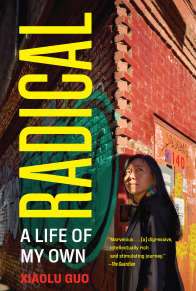In pre-Communist China, Fae Myenne Ng’s father memorized a book of lies and gained entry to the United States as a stranger’s son, evading the Exclusion Act, an immigration law which he believed was meant to extinguish the Chinese American family. During the McCarthy era, he entered the Confession Program in a failed attempt to salvage his marriage only to have his citizenship revoked to resident alien. Exclusion and Confession, America’s two slamming doors. As Ng’s father said, “America didn’t have to kill any Chinese, the Exclusion Act ensured none would be born.”
Ng was her parents’ precocious first born, the translator, the bossy eldest sister. A child raised by a seafaring father and a seamstress mother, by San Francisco’s Chinatown and its legendary Orphan Bachelors — men without wives or children, Exclusion’s living legacy. She and her siblings were their stand-in descendants, Ng’s family grocery store their haven.
Each Orphan Bachelor bequeathed the children their true American inheritance. Ng absorbed their suspicious, lonely, barren nature; she found storytelling and chosen children in the form of her students. Exclusion’s legacy followed her from the back alleys of Chinatown in the 60s, to Manhattan in the 80s, to the high desert of California in the 90s, until her return home in the 2000s when the untimely deaths of her youngest brother and her father devastated the family. As a child, Ng believed her father’s lies; as an adult, she returned to her childhood home to write his truth.
Orphan Bachelors weaves together the history of one family, lucky to exist and nevertheless doomed; an elegy for brothers estranged and for elders lost; and insights into writing between languages and teaching between generations. It also features Cantonese profanity, snakes that cure fear and opium that conquers sorrow, and a seemingly immortal creep of tortoises. In this powerful remembrance, Fae Myenne Ng gives voice to her valiant ancestors, her bold and ruthless Orphan Bachelors, and her own inner self, howling in Cantonese, impossible to translate but determined to be heard.
Praise for Orphan Bachelors:
CALIFORNIA BOOK AWARDS GOLD MEDAL WINNER FOR NONFICTION
Chinese American Librarians Association Best Book Award Winner
Winner of the 2024 William Saroyan International Prize for Writing in Nonfiction
A Kirkus Reviews Best Nonfiction Book of the Year and San Francisco Chronicle “Favorite Fiction and Nonfiction Books of 2023” Selection
A Booklist Editors’ Choice
“An exemplar of the historical memoir . . . Ng memorializes an enclave stuck in time, its demographics twisted by cruel constraints.”—The Atlantic
“Paints her story with flourish… Ng’s narrative might be likened to a figurative oil work, with structured lines building layers of her family’s history.”—New York Times
“Beautifully written, powerfully informative and never boring…. Thanks to Ng’s fierce talent and unapologetic honesty, Orphan Bachelors is a revelation.”—Washington Post
“A powerful, deeply expressive memoir about the ways the United States’ racist policies nearly crushed her family.”—San Francisco Chronicle
“The author’s straightforward prose and the work’s staggering scope bring home the myriad ways misguided policies damaged generations of immigrant families. Readers will be rapt.”—Publishers Weekly
“Each of Ng’s exquisite books, Bone (1993), Steer toward Rock (2008), now this, is worth the 15-year wait in-between… Ng presents a luminous memoir, finding transformative, aching authenticity in revealing difficult lives… Her exceptional storytelling elucidates and illuminates.”—Booklist, starred review
“Even today, many people continue to cast aside everything to flee across the ocean, risking their lives to cross multiple borders, working illegally, suffering exploitation: the Orphan Bachelors of our time. Fae Myenne Ng’s memoir is a living history, bringing to vivid life every member of her beloved and admired family. In Orphan Bachelors, every humble person is the hero of their own life.”—Sau-ling Cynthia Wong, World Journal Weekly (Shijie Zhoukan)
“Luminous… An exemplary study of the past brought into the present, spanning years and continents.”—Kirkus, starred review
“Intimate and evocative… Ng’s grace as a storyteller makes it possible to understand in one’s bones how heartless policy bends and misshapes lives for generations.”—BookPage
“By turns horrifying, hilarious and moving, Orphan Bachelors is a book that needed to be written. I was mesmerized by its intensity and haunted by its candor; it grips the reader and does not let go.”—Gish Jen, author of The Resisters
“Orphan Bachelors is so many treasures at once: an enthralling memoir, an act of reckoning, a history of American exclusion and Chinatown resilience, an attempt to conjure the vast horizons that her forebears were never allowed to imagine. Orphan Bachelors is the culmination of Ng’s brilliant career.”—Hua Hsu, author of Stay True
“Vividly connects Chinese immigrant history to the Asian American present—telling of a life built in a nation insistent on exclusion.”—Viet Thanh Nguyen, author of The Sympathizer
“Aha! So that’s what became of the men who went to sea. Aha! So that’s what that word—that sound—means. Oh, so I am not alone. Fae Myenne Ng’s memoir helps the reader recover memories, and to know lost history.”—Maxine Hong Kingston, author of The Woman Warrior
“Ng is part of a literary revolt that argued that it is not enough to be patted on the head for writing beautifully, which she does, but like Ng, one can be the archivist and librarian of the communities’ stories before they become extinct. Fae Myenne Ng continues to be among the globe’s finest writers.”—Ishmael Reed, author of Mumbo Jumbo
“No one else has written about the Exclusion era with such tenderness, intimacy, and hard-core fury. Sharp, bitter, tender, and funny, Orphan Bachelors teases out profound truths that vibrate with a bitter history, making my teeth chatter with anguish, curiosity, dismay. A helluva book.”—Gretel Ehrlich, author of The Solace of Open Spaces
“Fae Myenne Ng’s memoir is devastating in its account of the human costs of the Chinese Exclusion Act and how those played out in one tough but beleaguered family. Her writing is flinty but openhearted, blessedly direct but charged with poetry that rises straight from experience. There is not one ounce of fat in this book, not a grain of self-pity or sentimentality or rhetoric. It is a wonder.”—Lucy Sante, author of Low Life
“Ng’s memoir documents the personal legacy of her own family, as well as that of the Chinese community fractured by immigration policy. We have only to look at our current immigration record, locally and globally, to see that this story is still happening.”—Sandra Cisneros, author of The House on Mango Street
“Ng digs deep into ancestral bones, raw family wounds, historical and contemporary societal trauma, even exotic animal life — weaving a riveting and profound exploration into her essential self. A mind-expanding memoir that I will read again and again.”—Helen Zia, author of Last Boat out of Shanghai: The Epic Story of the Chinese who Fled Mao’s Revolution
“Fae Myenne Ng chose to be a writer because, she felt, ‘I had the gung fu for it.’ She sure did. She’s written a black belt of a book. Reading her vivid narration of her family’s endless balancing act of being Chinese and American, I suddenly run into what sounds like a haiku. That’s how lyrical her writing is, sometimes as musical as Cantonese poetry, other times as harsh as the Toishan dialect, employed in curses like ‘Wow your mother!’ or ‘Dai pow,’ meaning ‘pulling a big gun,’ or telling a good story. Fae tells a good story. Pow! Wow!”—Ben Fong-Torres, author of The Rice Room
“Haunted by the Orphan Bachelors’ never-born progeny, Fae Myenne Ng births a future by remembering them, their lived desires and endurance, honoring and inscribing their lives into the poetic songs and ancestral tablet that is this memoir. How many years ago, Ng penned the unforgettable and luminous novel, Bone, and today we are gifted with Orphan Bachelors. The circle closes.”—Karen Tei Yamashita, author of I Hotel
“A must-read for anyone interested in learning the personal repercussions of the Asian Exclusion Laws and the relentless persecution of Chinese immigrants during the Red Scare, in aching prose that zips and zooms . . . This historically informed yet intimate memoir pulsates with the author’s big heart, and that of her extensive family.”—King-Kok Cheung, Professor of English at UCLA
“Ng’s observations, her sharp eye and sharp ear, bring her surroundings to life and memorialize not only a particular time and place, but a timeless wisdom. Her gift is to both to retain and to transform, as she finds new, creative ways to honor the past, to mourn and to celebrate.”—Anne Twitty, winner of the PEN Award for Poetry in Translation
Praise for Bone:
“Blessed with a poet’s gift for metaphor and a reporter’s eye for detail, Ms. Ng writes with grace, authority and grit.”—New York Times
“An extraordinary first novel . . . A hopeful, charming, and surprisingly joyous work.”—Chicago Tribune
“Brutal and poignant, dreamy and gritty, specific to its place and resonant in its implication about what it means to be an American.”—Seattle Times
“Lively and artful… a gritty and moving story.”—Los Angeles Times
Praise for Steer Toward Rock:
“Combining elements of gangster noir, romance, grumpy-old-man comedy, and family drama, Ng finds a fresh and exciting way to tell a familiar story.”—Elle
“A more poetic, imagistic and ultimately deeper investigation into the dark and complex heart of the immigrant experience.”—Los Angeles Times
“Relentlessly fierce and unstintingly lovely. . . . Ng takes her time, says what she truly means to say, stares complication straight in the face, stares it down. One feels her attacking this fiction-writing business as if it’s the most important chance any of us will ever get to put the truth on paper, and one is left—it can’t be helped—in awe of her talent.”—Chicago Tribune















